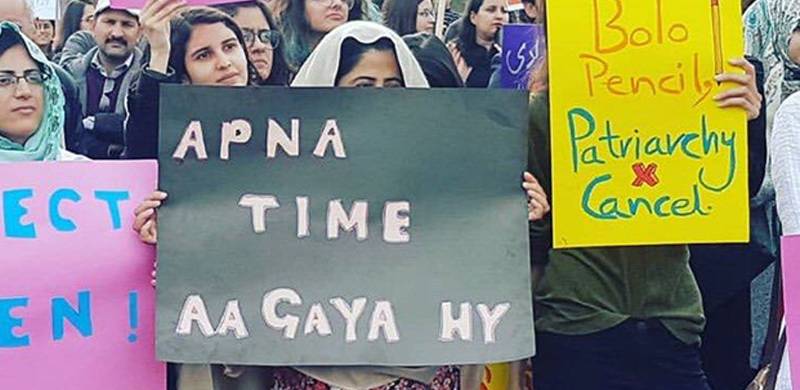
8th of march marked the international women’s day all over the world. In many countries it is the day of the celebration of the movement of resistance, raising voice against the violence, against the very structure of patriarchy and misogyny that has been here for millennia. The history of the women’s day begins from Feb 28, 1909 when socialist party of America organized first ever women’s day. In 1917, a revolution took place in Russia that resulted in women getting right of vote. After this, March 8 became official holiday there. The United Nations began celebrating it from 1975.
In 2018, the first ever women march was announced in Pakistan to celebrate the movement of women empowerment and to outline the issues faced by every section of women in the country, there were a lot of speeches, slogans and banners to resonate with the emotions of the women to deal with the whole circle of patriarchy. There was a lot of backlash of the Aurat March in 2018 from different segments of the society, some say “they have crossed the limits”, ”they are liberal women against religion”, ”they are only privileged women not knowing what women feel in general“ and some of them of course thought they were wearing shirts too short.
Similar slurs were hurled this year when some banners came out “look how they are mocking religion“, a saloon owner said pointing towards a banner that read: Why women’s testimony is considered half as men? “These girls are so unethical, why their parents allowed them to go out of the house“, an uncle I know who married her daughter forcefully to an old man said gesturing towards a banner. I will certainly judge these people who make comments like these because they are the ones defending the oppression against women in the name of culture, religion or in general as societal norms.
These banners were not the only ones that were there at the Aurat March but these were the only ones which were being highlighted to spew the venom of hate, insecurity people have when women question the power, the hegemony, the unfair and uneven system, the misogynist approach, sexist behaviour. When truth upsets people we all have to audit ourselves for what we have become as society, as beings.
Apart from the things people said about Aurat March, what people didn’t talk about was that the same stage, same voice was given to the 70 women of Empress Market who lost their earning in anti-encroachment drive and state never gave them any alternative place to sell their dry fruits. Same stage was given to the transgender community which talked about discrimination that they face every second in this miserable environment of the country. Same stage was given to minority women from Hindu, Christian, Ahmadi women who talked about their issues. Same platform was given to the daughters, sisters, wives, friends of the victims of enforced disappearances who talked about their loved ones. Same stage was given to the Baloch women who are being margnalised for being Baloch for years and same stage was given to the domestic workers who talked about their wages. Aurat March has become a symbol of diversity, resistance and women empowerment.
Here are some of the most prominent posters from this year’s march.
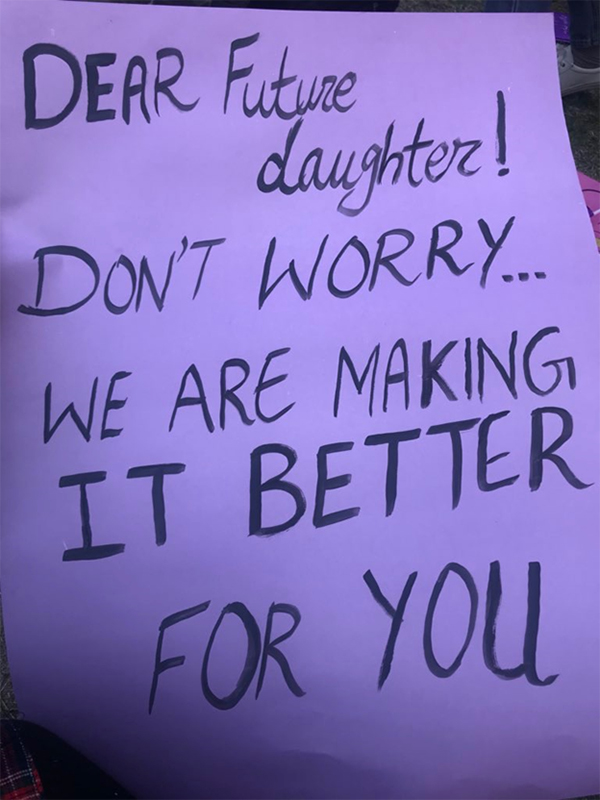
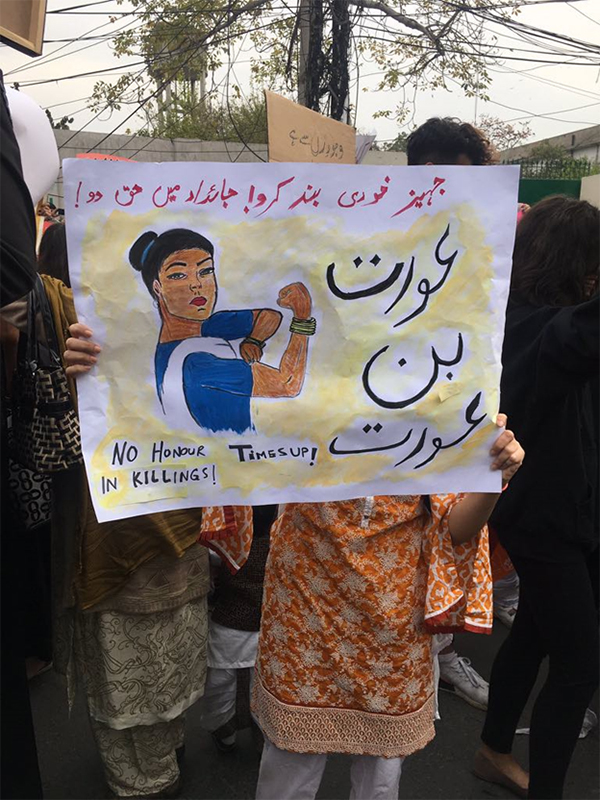
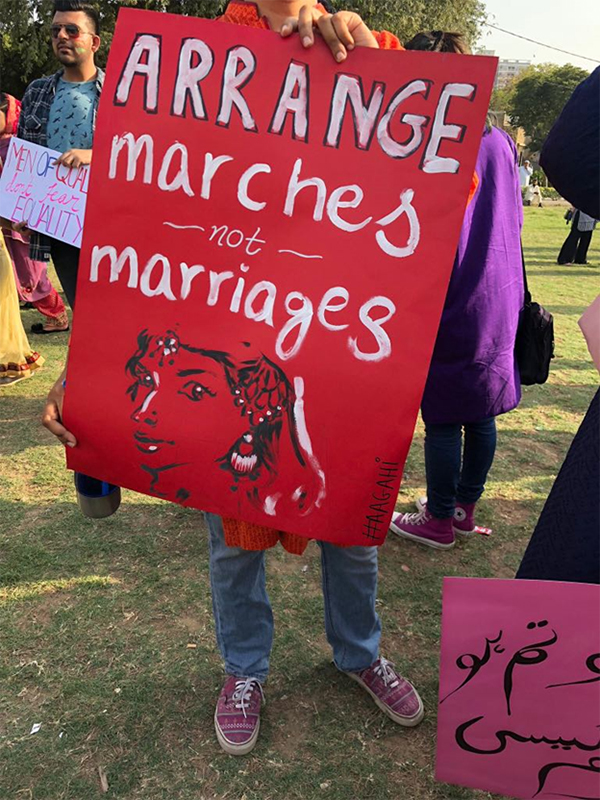
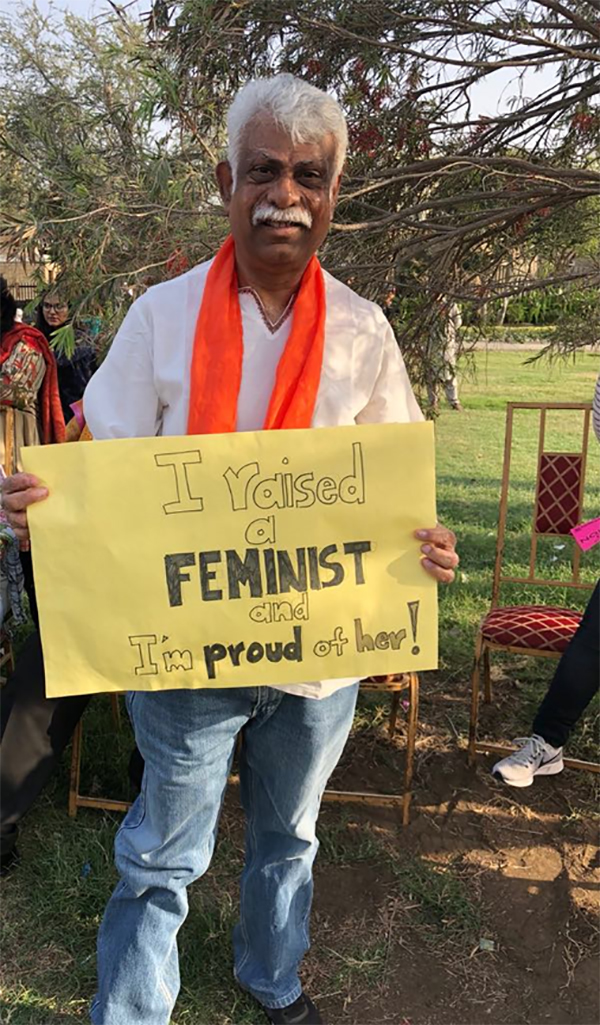
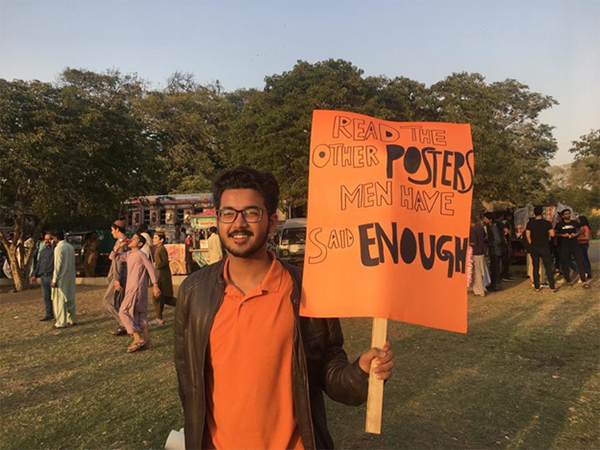
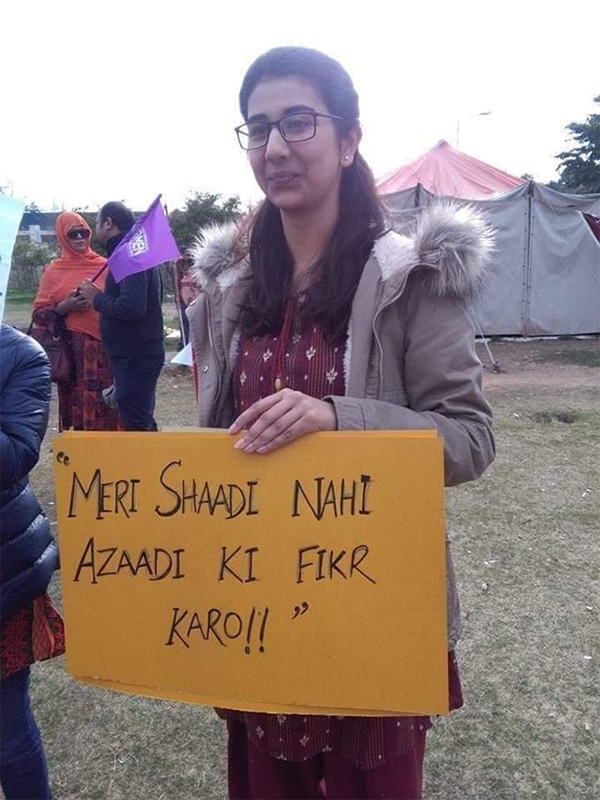
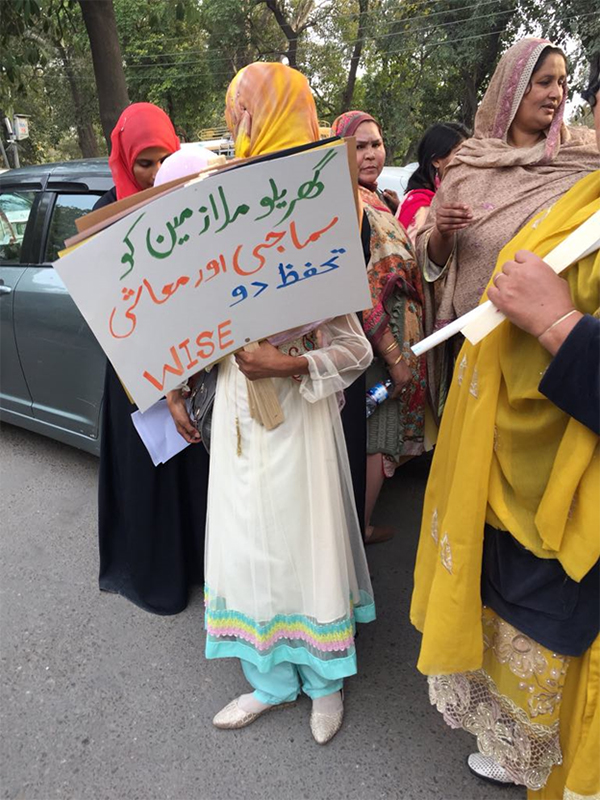
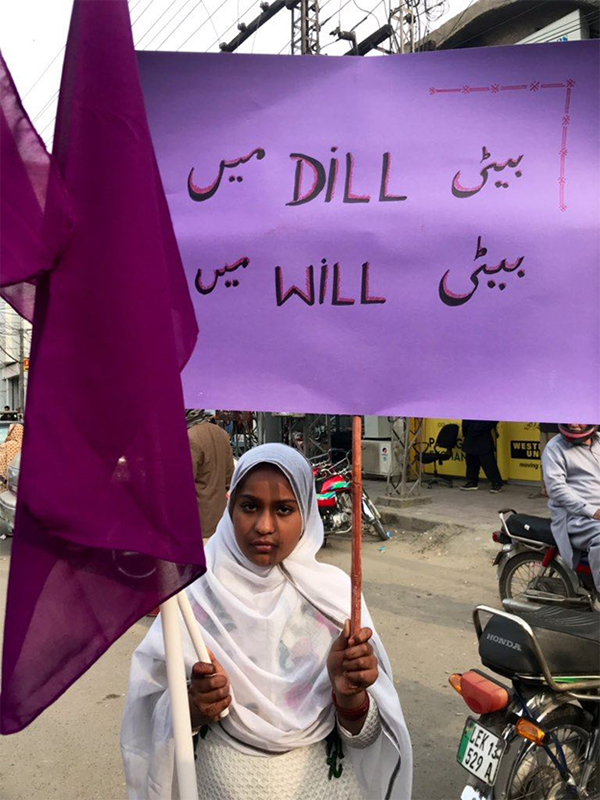
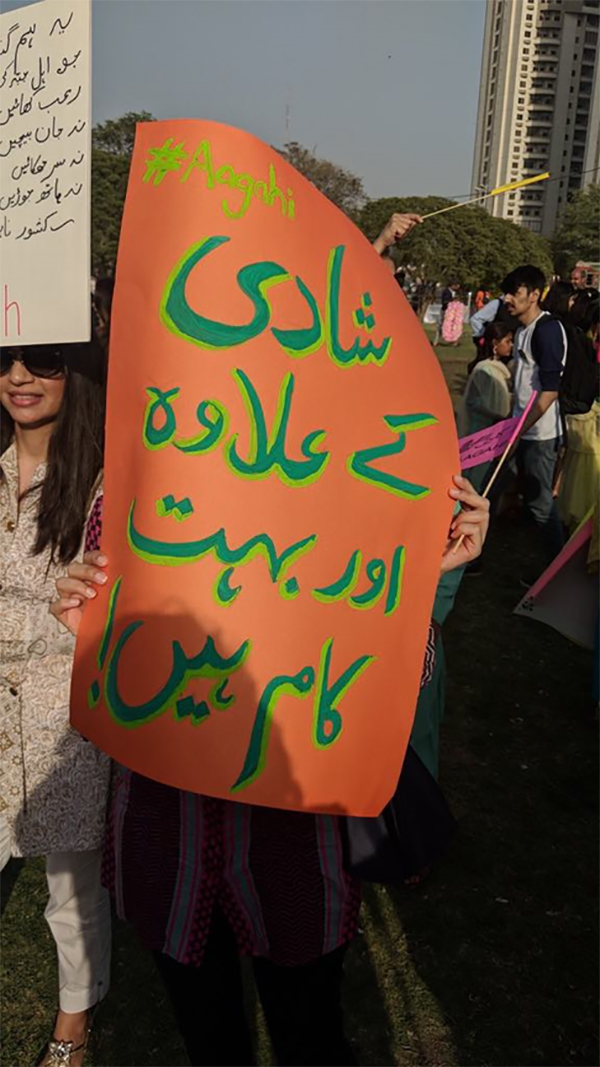
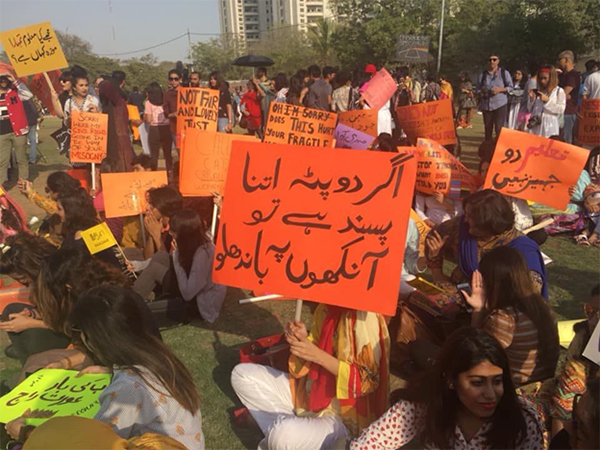
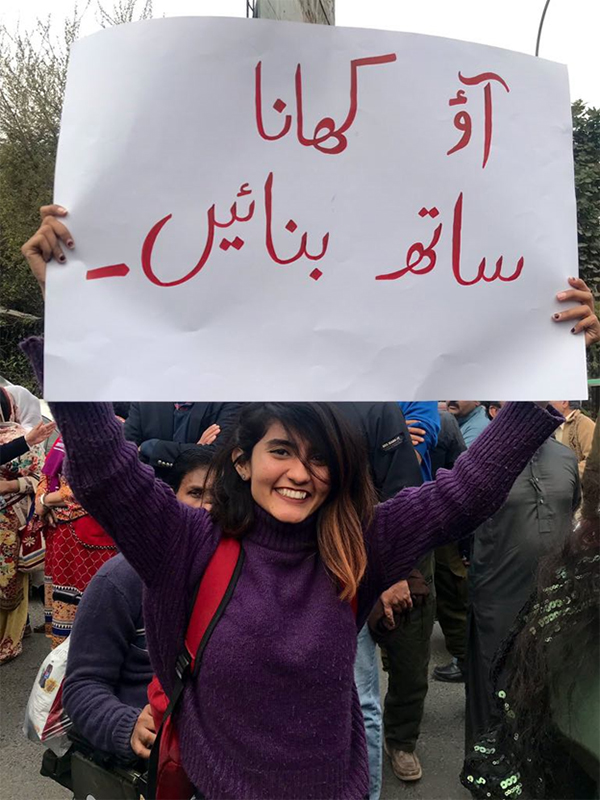
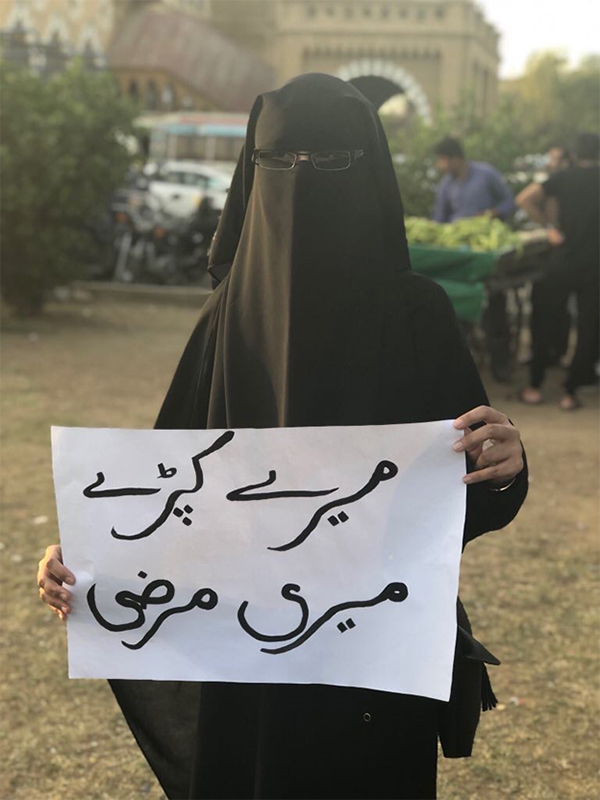
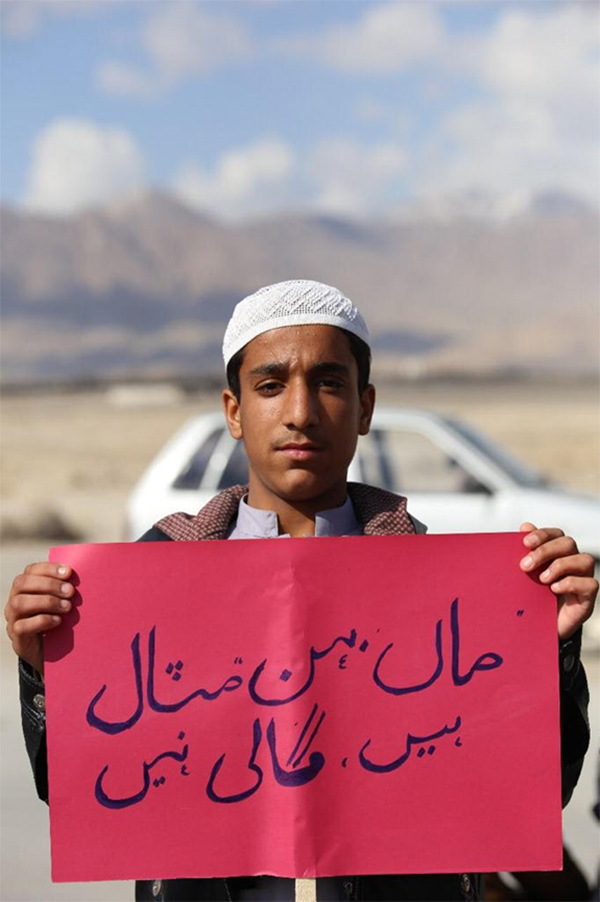
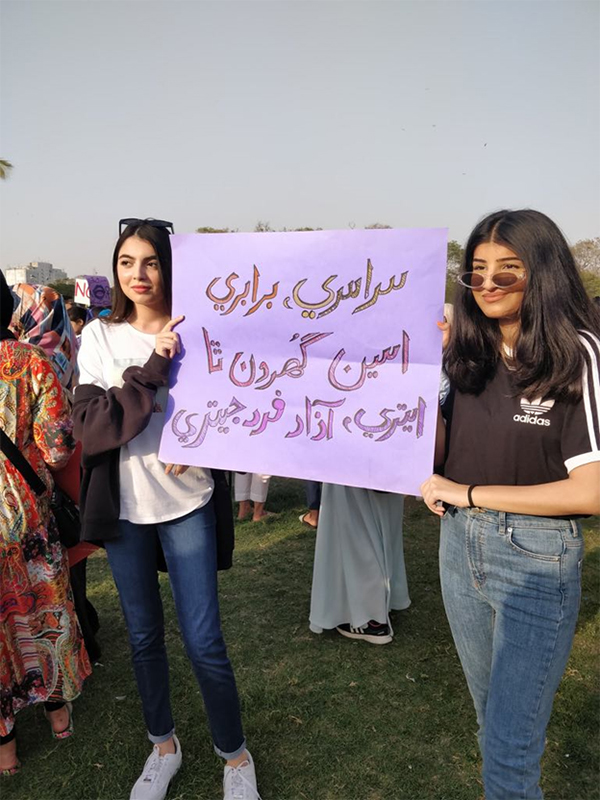
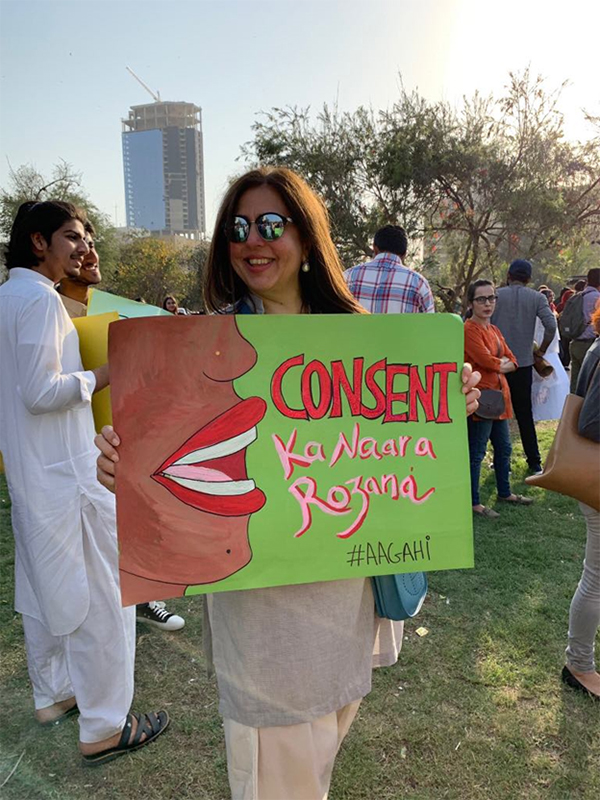
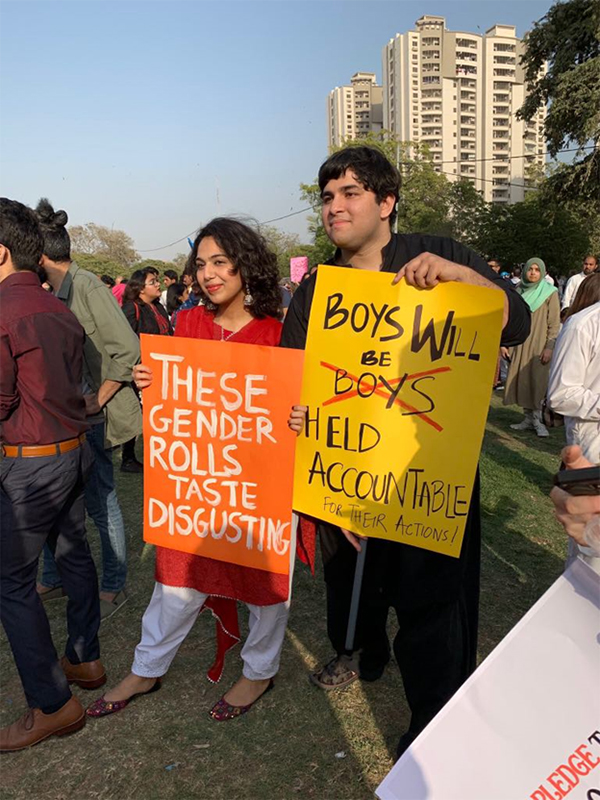
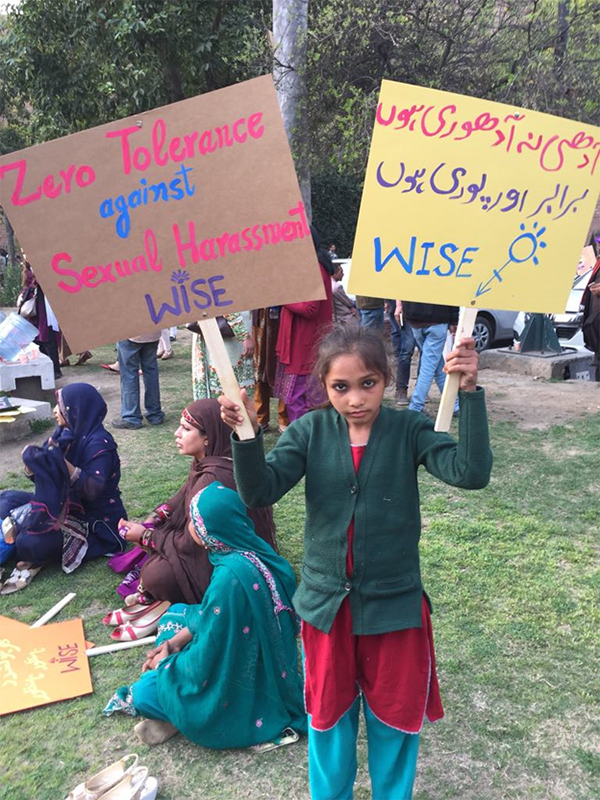
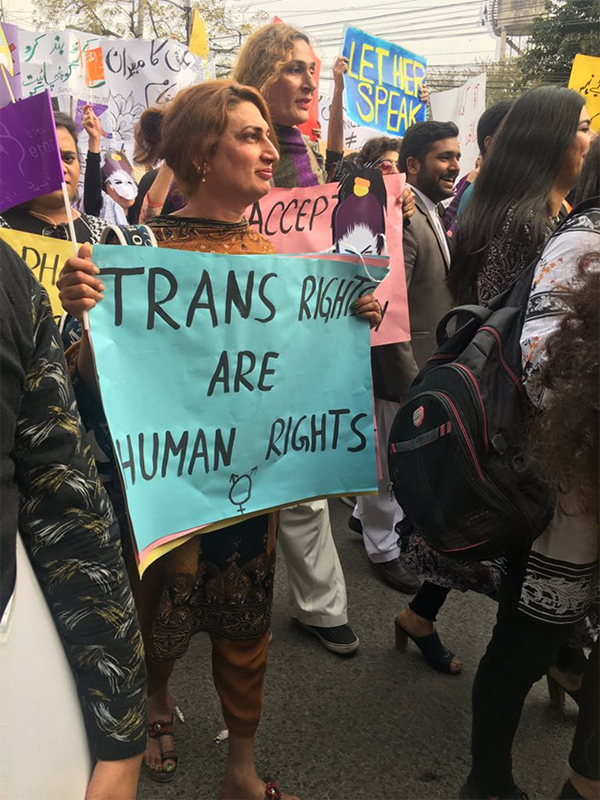
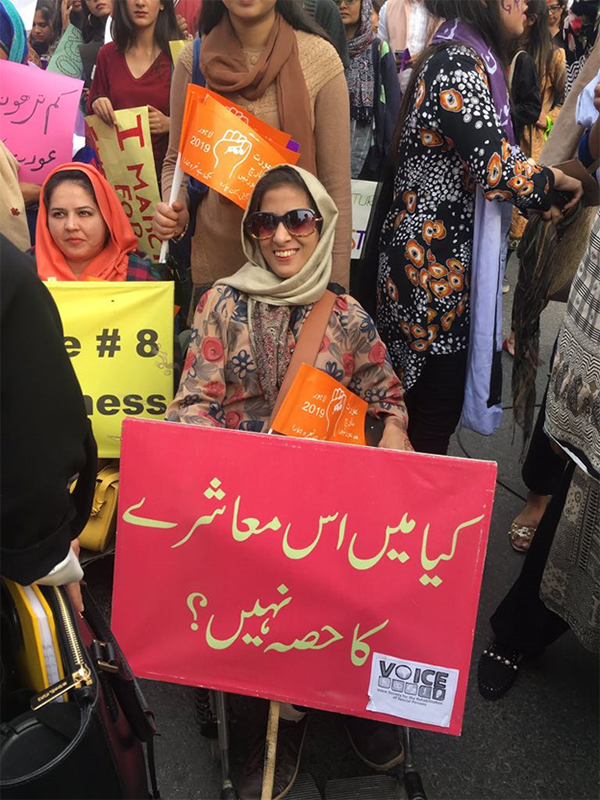
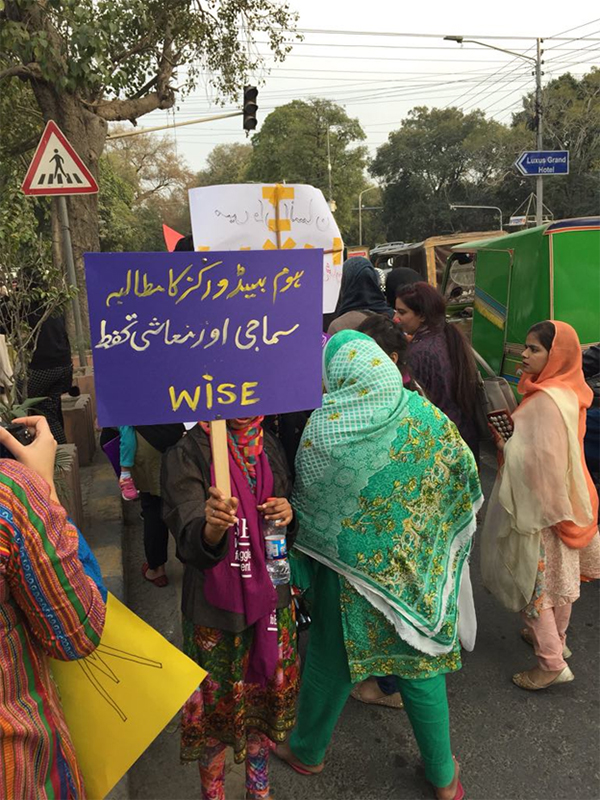
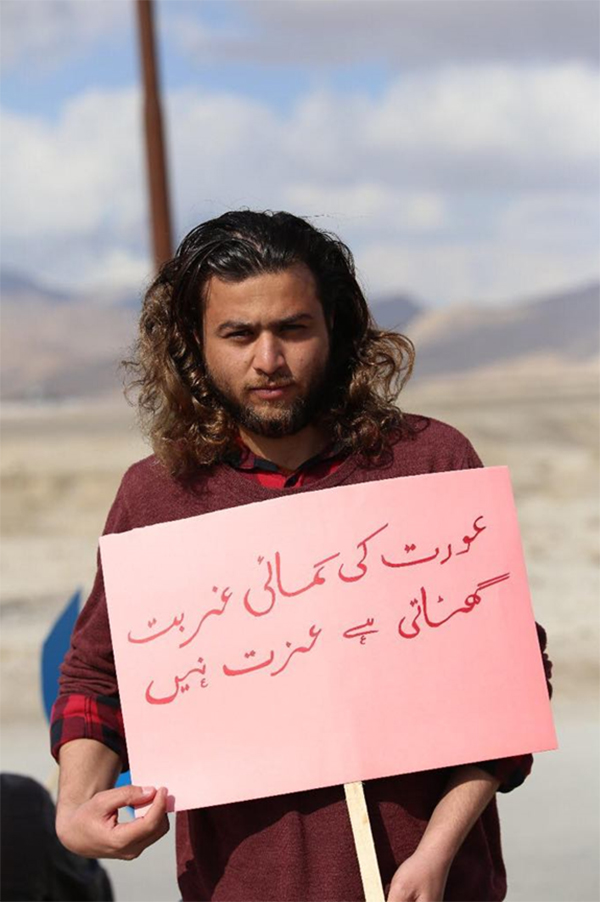
In 2018, the first ever women march was announced in Pakistan to celebrate the movement of women empowerment and to outline the issues faced by every section of women in the country, there were a lot of speeches, slogans and banners to resonate with the emotions of the women to deal with the whole circle of patriarchy. There was a lot of backlash of the Aurat March in 2018 from different segments of the society, some say “they have crossed the limits”, ”they are liberal women against religion”, ”they are only privileged women not knowing what women feel in general“ and some of them of course thought they were wearing shirts too short.
Similar slurs were hurled this year when some banners came out “look how they are mocking religion“, a saloon owner said pointing towards a banner that read: Why women’s testimony is considered half as men? “These girls are so unethical, why their parents allowed them to go out of the house“, an uncle I know who married her daughter forcefully to an old man said gesturing towards a banner. I will certainly judge these people who make comments like these because they are the ones defending the oppression against women in the name of culture, religion or in general as societal norms.
These banners were not the only ones that were there at the Aurat March but these were the only ones which were being highlighted to spew the venom of hate, insecurity people have when women question the power, the hegemony, the unfair and uneven system, the misogynist approach, sexist behaviour. When truth upsets people we all have to audit ourselves for what we have become as society, as beings.
Apart from the things people said about Aurat March, what people didn’t talk about was that the same stage, same voice was given to the 70 women of Empress Market who lost their earning in anti-encroachment drive and state never gave them any alternative place to sell their dry fruits. Same stage was given to the transgender community which talked about discrimination that they face every second in this miserable environment of the country. Same stage was given to minority women from Hindu, Christian, Ahmadi women who talked about their issues. Same platform was given to the daughters, sisters, wives, friends of the victims of enforced disappearances who talked about their loved ones. Same stage was given to the Baloch women who are being margnalised for being Baloch for years and same stage was given to the domestic workers who talked about their wages. Aurat March has become a symbol of diversity, resistance and women empowerment.
Here are some of the most prominent posters from this year’s march.





















